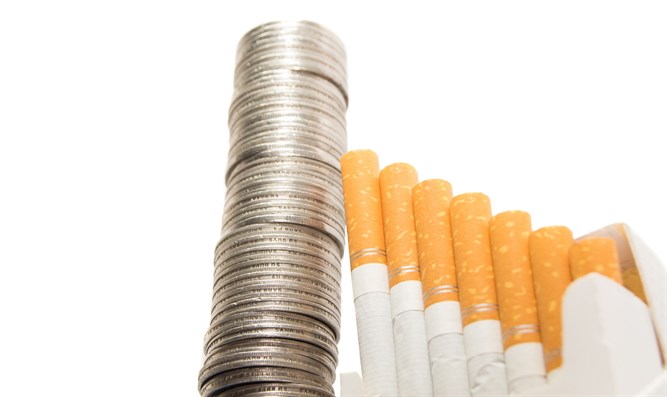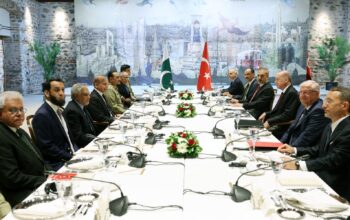By News Desk
If the government’s move to institute new taxation measures through a minibudget was aimed at raising more revenue to plug the yawning budget deficit, it may well prove counterproductive – at least as far as it concerns the tobacco sector.
Experts say the tobacco taxation regime is now heavily loaded in favor of undocumented cigarette manufacturers operating outside the tax net. Other beneficiaries of the new tax structure include those trading in smuggled cigarettes and producers of counterfeit cigarettes in clandestine factories.
The premise of the move to hike taxes on tobacco products is simple enough: The more you increase the tax, the more revenue you will get. Any demand drops caused by the high retail prices represent smokers quitting smoking – a win-win situation for the economy and society.
Sadly, this logic works only in an environment where there is no black market for tobacco products. In our situation, however, there is a huge black market comprising undeclared factories as well as smuggling rings dumping foreign cigarette brands on the local market.
Thanks to this massive black market, the government’s new Federal Excise Duty (FED) on cigarettes has become counterproductive. The move came against the backdrop of government negotiations with the International Monetary Fund (IMF) to put a stalled bailout program back on track by raising an additional Rs170 billion in taxes.
However, industry experts have warned the move may result in permanent damage to a tax-paying industry instead of producing an immediate windfall of tax revenue to the exchequer.
To understand tobacco taxation in Pakistan, one needs to understand the structure of the applicable FED. There are two tiers of excise, the first is Tier I, which is applied to expensive cigarettes. This has been increased to Rs16,500 from Rs6,500 per thousand cigarette sticks which translates to Rs330 per 20-pack. The second is Tier II, which is applied to the lower priced cigarettes. This Tier II has been increased to Rs5,050 from Rs2,050 per thousand cigarette sticks which translates to Rs101 per 20-pack.
In addition to this, the law prescribes a Retail Price Threshold that sits between the Tier 1 and Tier II FED rates. This Threshold has increased by only 35 percent, from Rs6,660 per thousand cigarette sticks to Rs9,000 per thousand cigarette sticks. There is also a Minimum Legal Price restriction which determines that brands cannot sell below a certain price i.e., price floor.
Under the current tax regime, the minimum price per packet of cigarettes has been mandated as per Section 3, First Schedule of Federal Excise Act 2005 which states that: “Minimum price. – No brand shall be priced and sold at a retail price (excluding sales tax) lower than sixty percent of the retail price under column (2) against serial number 9 of Table-I of the First Schedule to this Act.”
It is alleged that Pakistan has one of the lowest weighted average cigarette prices in the world. This is because almost half of the market is illegal and sells below the minimum price and tax applicable per packet of cigarettes.
As corroborated by multiple world-renowned research companies, more than 200 local illicit cigarette brands sell in Pakistan well below the mandated minimum price (Rs108 excluding sales tax) which includes a minimum FED of Rs101 per pack of cigarettes.
Duty and tax evasion by the local illicit cigarette industry has been threatening the operating environment for legitimate players and depriving and robbing the country of billions of rupees annually.
The increase in excise rates without a corresponding increase in the retail price threshold is unprecedented and has created irregularities that cannot be addressed through the existing restrictions in the Federal Excise Act 2005. The FED rates are to increase by 154 percent on Tier I and 146 percent on Tier II, whereas the increase in threshold is only 35 percent with a negligible increase in the price floor of cigarettes.
Globally, it has been witnessed that a price floor is introduced to ensure the lowest price of a packet of cigarettes in the market and to gradually keep increasing this floor. In Pakistan, the Minimum Legal Price is linked to the Retail Price Threshold which is set at 60 percent of the threshold.
Despite increasing the rate from 45 percent to 60 percent of the Retail Price Threshold, the minimum price has increased by only 80 percent. This is because the threshold has only increased by 35 percent, from Rs6,660 to Rs9,000 per thousand sticks. Resultantly, the increase in minimum price increase is very little, encouraging the sale of low-priced cigarettes in the country.
The Federal Board of Revenue (FBR) is making expensive cigarettes much more expensive but not increasing the minimum price of a pack in the country.
Why is this so? The retail price threshold should increase in line with the increase in Tier II rates so that the minimum legal price in the country comes up and criticism that Pakistan has the lowest-priced cigarettes, stops.
The retail price threshold that has increased recently is not sufficient to increase the Minimum Legal Price. Increasing the threshold alone can ensure that prices are moving in an upward trend.
At this critical juncture that the country is facing, the Government needs to be wary of the fact that whatever measures are being introduced do not have unintended consequences and achieve the objectives that have been set.
Our economic managers must realize that our ailing economy can only be uplifted through the collective efforts of all legitimate industries, which necessities a strict clampdown on the black economy.
The government is within its right to impose taxes, but it must ensure any such move is designed to discourage rather than encourage black market activity. What is more, no taxpaying industry must be strapped with a tax burden that threatens its sustainability. Additionally, the government must ensure the enforcement of tax laws across the board to ensure that the illicit trade of cigarettes is curtailed.
The tax burden brought on by the recent minibudget fails on both counts. It loads the price regime to the benefit of the black market as the cost of the country’s formal tobacco industry, and the magnitude of new taxation is arduous enough to threaten the viability of the formal industry.
In an already challenging business climate, such cavalier measures cannot fail to cause all-around harm by causing a massive decline in government revenues, employment generation, and export sustainability.
Copyright © 2021 Independent Pakistan | All rights reserved




